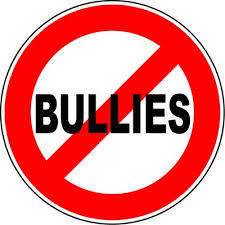Pakistan's Bully Politics
Pakistan's bully politics breeds political operators who use verbal insults and threats of physical violence to intimidate opponents. For a legion of cultural reasons, Pakistan encourages, protects, and even romanticizes bully politics. Educated, calm, and judicious politicians, with credible knowledge of statecraft, rarely rise to the top leadership of political parties.
Woven around a few wealthy families -- with a history of mistreating servants, employees, farmers, and workers -- most political parties nurture the art of bully politics. Even middle-class politicians figure out pretty early that the way to get popularity and rise to the top of political stepladder is to deliver speeches replete with caustic accusations, foul language, and overt threats to the person and household of political opponents. In some cases, political leaders deliver direct threats to police officers and might even incite their followers to gang up and browbeat policemen.
Like bullies in gang warfare, political bullies have little respect for the rule of law and law enforcement agencies. They view politeness and calm demeanor as points of personal weakness.
Pakistan's bully politics has become most apparent in the recent Islamabad sit-ins in which Oxford-educated Imran Khan and Islamic scholar Tahir ul Qadri have issued threats of violence, engaged in verbal abuse, and incited their followers to attack the national parliament. They are protesting against systemic injustice, poll rigging, and demanding that the Prime Minster resign. Both Khan and Qadri have been raised in Punjab, the most populated province of Pakistan.
Pakistan's bully politics has become most apparent in the recent Islamabad sit-ins in which Oxford-educated Imran Khan and Islamic scholar Tahir ul Qadri have issued threats of violence, engaged in verbal abuse, and incited their followers to attack the national parliament. They are protesting against systemic injustice, poll rigging, and demanding that the Prime Minster resign. Both Khan and Qadri have been raised in Punjab, the most populated province of Pakistan.
Punjabi Culture
Bully politics is the invention of Punjabi culture, even though it is now practiced throughout Pakistan. The Punjabi culture, one of the oldest cultures of the world, is layered with sweetness, joviality, generosity, and light-heartedness. Punjab has produced great mystics, poets, singers, generals, and religious leaders.
Yet, Punjab has a dark side most conducive to bully politics. Punjabis have perfected the science of foul language (گالیاں) and threats of fighting words (دهمکی). Ordinary heated conversations among friends are incomplete without the consumption of foul language, sometimes to adorn the argument. Popular Punjabi jokes reinforce the point that no show of antagonism can be accomplished without hurling filthy curses.
Just like foul language, threats are routinely given to intimidate opponents, neighbors, classmates, shopkeepers, even lawyers and judges. Known as turri (تری) and burruk (برک) in the Punjabi language, these are fighting words employed to extract benefit or cause behavior modification.
Unfortunately, Imran Khan uses both foul language and fighting words in his political speeches. Though Khan has lived in England for many years and was married to a sophisticated English lady, there is little trace of English respectability left in his political conduct. Khan behaves more like a Punjabi villain in an action movie (Maula Jat) rather than an Oxford don. Qadri, a law professor and Sufi, is more restrained in the use of foul language but his fighting words are fiercer than those of Khan. In speeches, Qadri regularly delivers threats to hang the Prime Minister and the Chief Minister of Punjab.
Unfortunately, Imran Khan uses both foul language and fighting words in his political speeches. Though Khan has lived in England for many years and was married to a sophisticated English lady, there is little trace of English respectability left in his political conduct. Khan behaves more like a Punjabi villain in an action movie (Maula Jat) rather than an Oxford don. Qadri, a law professor and Sufi, is more restrained in the use of foul language but his fighting words are fiercer than those of Khan. In speeches, Qadri regularly delivers threats to hang the Prime Minister and the Chief Minister of Punjab.
Khan and Qadri are by no means the only politicians who engage in bully politics. Punjab Chief Minister Shahbaz Sharif is on record for using fighting words against President Asif Zardari. Several politicians from Punjab, and some from other provinces, continue to engage in bully politics, frequently openly fighting in popular talk shows. Some talk show hosts take delight in exposing bully politics.
Crude Analysis
In addition to cultural undercurrents, bully politics flourishes the most in countries such as Pakistan where the people are poor and illiterate. Bully politics presumes that the people have little capacity to understand the complex dynamics of economy, sociology, and foreign affairs. Accordingly, politicians resort to crude analysis, articulating national issues in rudimentary concepts such as theft, murder, and injustice, accusing the government of stealing state resources, casting security forces as heartless killers, and painting the prevailing system as the source of all social and economic adversity.
Shunning rational discourse, bully politics speaks the language of emotions and reduces politics to inter-personal rivalries. Leaders are not interested in any serious policy analysis. Some might not even spend any time in learning about the problems that face the nation.
Promoting Civility
Promoting Civility
As I have been suggesting in prior writings on Pakistan, the free and vibrant electronic media of Pakistan can play a decisive role in transforming bully politics. The media talk show hosts must refrain from staging political cockfights. The hosts themselves must prepare for serious policy analysis and invite politicians and experts who have the requisite knowledge to discuss serious matters facing the nation. They must have zero tolerance for bully politics.
Furthermore, major political parties should seriously consider the dangers of bully politics and develop a national code of political conduct. Each political party may launch its own training programs for coaching leaders and political workers in the art of effective communication with the people.
The national parliament and provincial legislatures are natural places where a political culture based on policy analysis and mutual respect can be cultivated.



Comments
Post a Comment